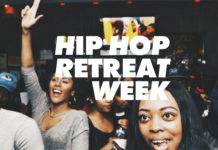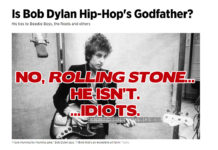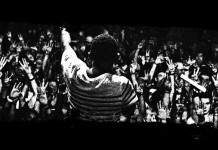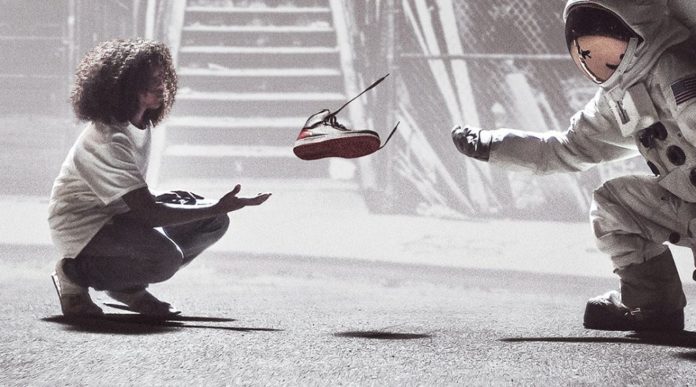Sneaker culture in America is, in many ways, a microcosm of the country’s ingrained ideal of capitalistic pursuits.
It can be represent a dogged, often detrimental, seemingly unending chase of materialistic desires, just as likely to be fueled by entrepreneurial and opportunistic wisdom as it is by pure ego or raw lust. It can lead one to a greater state of individuality or down a path of herd mentality. It can be financially rewarding or emotionally emptying. It can place you among like-minded community or leave you lost in tunnel-visioned isolation. It can get you the girl. Or the guy.
It can get you killed.
Kicks, the debut feature-length film from screenwriter/director Justin Tipping, deals with this phenomenon and its occasionally dark underbelly with impressive ambidexterity, by conjuring up a recognizable, relatable, nostalgic landscape for many who have lived in similar circumstances that doubles as an educational — albeit harsh — peek inside for cultural outsiders.
The Hip-Hop Education Center recently hosted an advanced screening of Kicks at New York’s Sunshine Cinema, which was followed by a Q&A panel with Tipping led by HHEC founder Martha Diaz. Joining Ms. Diaz and Mr. Tipping was DJ, media personality and brand ambassador Vashtie, as well as Sharese Bullock-Bailey of the Tribeca Film Institute.
Vashtie, a video director and filmmaker in her own right, admitted she was initially skeptical of the degree to which a story revolving around the sneakerhead mentality could be told. In an era where there is an all-too thin line between authentic admiration and exploitable appropriation, this is often a concern for those like Vashtie, products of a ‘hood upbringing and a longtime participating member of streetwear/skater/hip-hop lifestyles, who often helplessly witnesses their narratives co-opted by powerful cultural interlopers.
Once into the film however, as she explained during the post-screening panel, her initial protective cynicism quickly faded. She praised Tipping’s authentic portrayal of the hardscrabble life often found in poorer communities of color, and the manner in which materialism in general, and sneakers in particular, intertwine with those communities in various ways, some touchingly innocent, others devilishly insidious.
The story follows three California teens, with focus on one, Brandon, solidly portrayed by relative newcomer Jahking Guillory, as they navigate a hair-raisingly adventurous quest to retrieve a stolen pair of Air Jordans against the backdrop of an already tumultuous existence. It is an at-times harrowing coming-of-age tale that somehow manages to feel nostalgic and modern all at the same time.
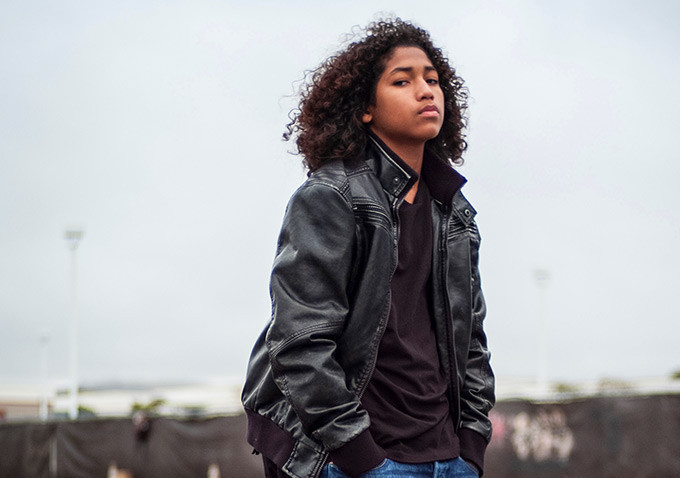
Many in attendance left feeling the film invoked a gamut of emotions from humorous to heartwarming, from depressing to hopeful. For several though, the settings and occurrences were hauntingly familiar, creating a mixed-reaction of reflective nostalgia — i.e., this is how it was — and depressing sadness — i.e, this is how it still is.
Despite these complicated intricacies, Kicks could easily have fallen into the checkbox of heightened ghetto sensationalism, and though some of the characteristics one might typically expect in such a film do flare up, often with surprisingly emphatic force, it never feels gratuitous. While the crass and often dramatically violent depictions can be jarring, there is a tale to be told here that delves into issues like masculinity, gun violence, poverty and grit.
Humor helps. The writing, the actors — including Christopher J. Wallace, son of hip-hop royalty The Notorious B.I.G. — and their adlibs are often impeccably timed and offer relief throughout an otherwise tense storyline. Authenticity helps, in the way Boyz n the Hood felt painfully real to both those who lived it and to those who didn’t.
But the real treat — aside from Mahershala Ali showing up in a very non-Remy/House of Cards role — was the slightly surprisingly good cinematography that Kicks employs, equally as compelling during a chase or a fight scene as it is during periods of narrative self-reflection. The exquisite direction, camerawork and editing are particularly evocative in moments where Brandon’s imagination makes its other-worldly presence felt, inviting viewers into the ironic surrealism of his normalcy.
In all, Tipping, who was a bronze medal winner at the 2012 Student Academy Awards (yes, THAT Academy), wove several devices together in a smart, artful manner, reaching just enough outside of the visual box to emphasize his story without damaging it with unnecessary experimentation.
The one glaring critique is that women in the film are portrayed as somewhat one-dimensional, something that Tipping attempted to smooth over with post-screening explanation, but at the core, Kicks, which was an official selection at the 2016 Tribeca Film Festival, still tells a provocative, illuminating story, brought to life by quality writing, a memorable cast, clever use of cinematographic devices, elegant editing and an excellent, hip-hop-influenced score.
It is the kind of film that sits right on the ridge of message and mayhem, a well-balanced mix of indie feel and mainstream appeal. This can be a magical place for film, where audiences from many walks of life can recognize shared, relatable experiences or be educated through well-crafted, edge-of-their-seat entertainment.
Such is the case for Kicks. Basically, a movie for all.
Moviegoers can catch Kicks in theaters this September. Bring your sidekicks.
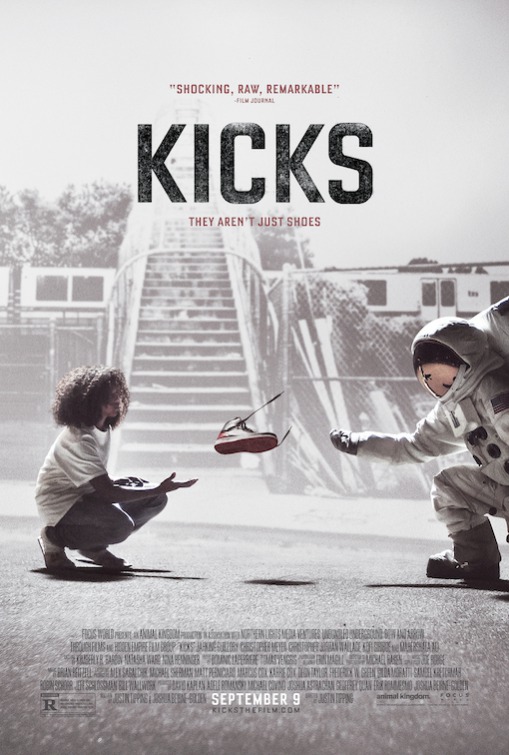
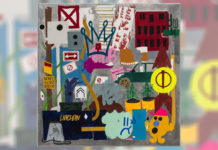
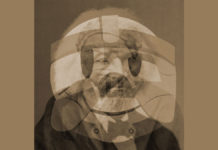
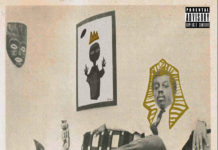
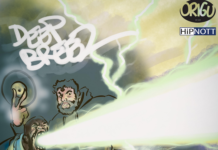

![The Underachievers – Crescendo [VIDEO]](https://www.birthplacemag.com/wp-content/uploads/2017/08/hqdefault-2-218x150.jpg)


![Fat Joe & Remy Ma ft. The-Dream – Heartbreak [VIDEO] Fat Joe Remy Ma The Dream - Heartbreak Video](https://www.birthplacemag.com/wp-content/uploads/2017/05/fat-joe-remy-ma-218x150.jpg)
![JSWISS featuring Chandanie – LML [VIDEO] JSWISS featuring Chandanie - LML [VIDEO]](https://www.birthplacemag.com/wp-content/uploads/2017/05/JSWISS-218x150.jpg)

![Akinyemi Ends Summer With “Summers” EP Release Show [9-17-17] Akinyemi 'Summers' EP release show at Brooklyn Bazaar](https://www.birthplacemag.com/wp-content/uploads/2017/09/summers-featured-218x150.jpg)
![4th Annual NYC VS EVERYBODY Yacht Party [9/16/17] #VSYacht 4th annual NYC VS Everybody Yacht Party#VSYacht](https://www.birthplacemag.com/wp-content/uploads/2017/09/vsyacht-218x150.jpg)

